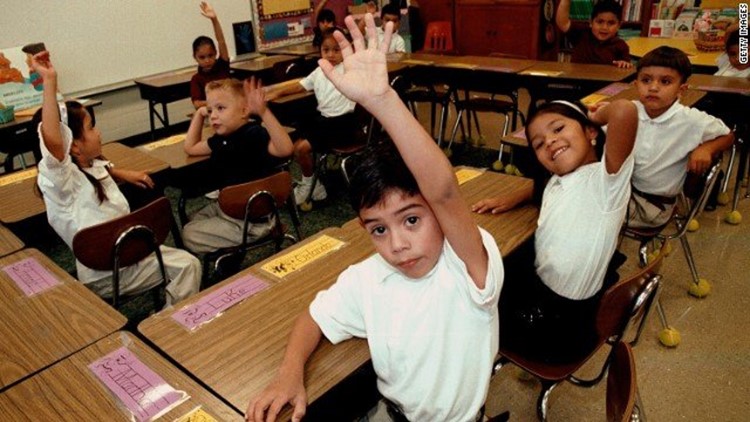(CNN) — Parents often dream about their child’s future, but a career in politics seems more like a nightmare to many.
Nearly two-thirds–64%–of Americans would not like their child to pursue a political career, compared to 31% who think that would be a good path, according to a Gallup survey released Friday.
That number has remained relatively consistent since Gallup began asking about sons and daughters in 1993. Those who approved of a career in politics for their child have fluctuated between 61% and 71%.
With the country recovering from a bitter presidential campaign and with the approval ratings of Congress hovering just above 10%, it’s no surprise that parents want their children to avoid one of the least-liked professions among Americans.
A Gallup survey released last month showed Congress ranking last among 16 society institutions in terms of confidence levels from the American people. The military placed first, small business came in second, church and organized religion came in third and the presidency came in fourth.
Breaking it down by demographics, nonwhites are much more likely than whites to say they would like to see their child go into politics, according to Gallup. By a margin of 42% to 26%, nonwhites say they’d like their son to have a political career, and 45% to 25% say they’d like their daughter to do the same.
There is little difference between ideologies, though Democrats and independents are slightly more likely than Republicans to want their child to go into politics. Men are also a little bit more likely than women to want their sons and daughters to choose a politically-related career.
Interestingly, the numbers significantly change according to the order of the questions. Americans are much more likely to say they want their daughter or son to go into politics when they’re asked about a daughter first. Thirty-seven percent say they’d like to see their daughter go into politics; when followed up with a question about a son going into politics, an equal amount say they would like that kind of future for their son.
However, when Gallup switched up the order and asked about a son first, the number of those wanting to see a son go into politics drops 12 percentage points to 25%. When asked about a daughter next, 26% said they would like their daughter to go into politics–also a sharp decrease.
Thirty-one percent marks the average of both genders when considering the order of the questions. Gallup says the answering trend has been consistent in the past.
“This suggests that Americans may be interpreting the question as one about gender equality when asked about a daughter first, and therefore that makes them more likely to favor a political career for their children of either sex,” read a release that came with the poll. “When asked about a son first, Americans may interpret the question as more straightforward one about the desirability of a political career and are less likely to favor it for either a son or daughter in that circumstance.”
While Gallup started asking about daughters in 1993, the polling institution has been questioning Americans about sons since 1944. Curiously, the number of those wanting to see their son go into politics has changed little since then, when it stood at 21%. The highest point ever was in 1965, when 36% said they wanted to see their son go into politics. This was a time when “Americans were still rallying around President Johnson after he took office following the death of John F. Kennedy,” the release stated.
Gallup surveyed 2,048 American adults by telephone from June 20-24, with a sampling error of plus or minus three percentage points.
™ & © 2013 Cable News Network, Inc., a Time Warner Company. All rights reserved.



